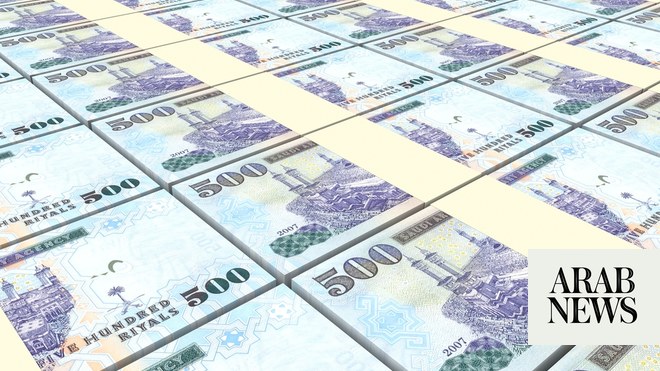
RIYADH: Saudi Arabia returned to the debt markets on Monday for the second time this year, offering dollar Islamic bonds with tenors of six and 10 years, a bank document showed on Monday.
Initial guidance for the six-year sukuk was around 110 basis points over US Treasuries and around 135 bps over UST for the 10-year, the document on the sale showed.
Citi, JPMorgan and Standard Chartered are global coordinators. Aljazira Capital, BNP Paribas and Goldman Sachs are also on the deal.
The world’s top oil exporter last tapped the public debt markets in January, raising $10 billion with three-tranche conventional bonds.
The Islamic finance industry is forecast to grow in 2023-2024 thanks to Saudi Arabia’s strong banking system, according to report from S&P Global Ratings released earlier in May.
The US-based agency expects around 10 percent growth across the industry in 2023-2024 after seeing a similar expansion in 2022, with the Kingdom and Kuwait largely fueling last year’s rise.
S&P Global Ratings also believe that despite a predicted economic slowdown and a decline in sukuk issuance this year, new supplies of the product will exceed those set to mature.
The report echoes findings from US-based Fitch Ratings released in April, which claimed the global sukuk issuance for the second quarter of 2023 is building up even as it faces short-term uncertainties amid continued macro-volatilities.
In its report, S&P Global Ratings said: “We expect a material slowdown in GCC (Gulf Cooperation Council) economies" real GDP (gross domestic product) growth in 2023-2024, compared with 2022, largely based on lower oil production.
“However, we think that Saudi Arabia’s banking system performance will continue to underpin a large portion of the expanding Islamic finance industry.
“In other GCC countries, growth of about 5 percent appears plausible in the absence of new major government investment cycles.”
High oil prices helped Saudi Arabia tilt to its first fiscal surplus since 2013 last year. It has said it expects a consecutive, albeit narrower, surplus in 2023, clouded by global economic concerns and an uncertain oil price outlook.
“They are cutting oil production and a recession in the US is likely — so this issue is a good example of prudent debt management,” said Dino Kronfol, chief investment officer of global sukuk and Middle East and North Africa fixed income at Franklin Templeton.
Saudi Arabia said it would trim oil production by 500,000 barrels per day from May, part of a surprise 1.16 mbpd cut announced by the Organization of the Petroleum Exporting Countries and its allies, known as OPEC+.
(With input from Reuters)












